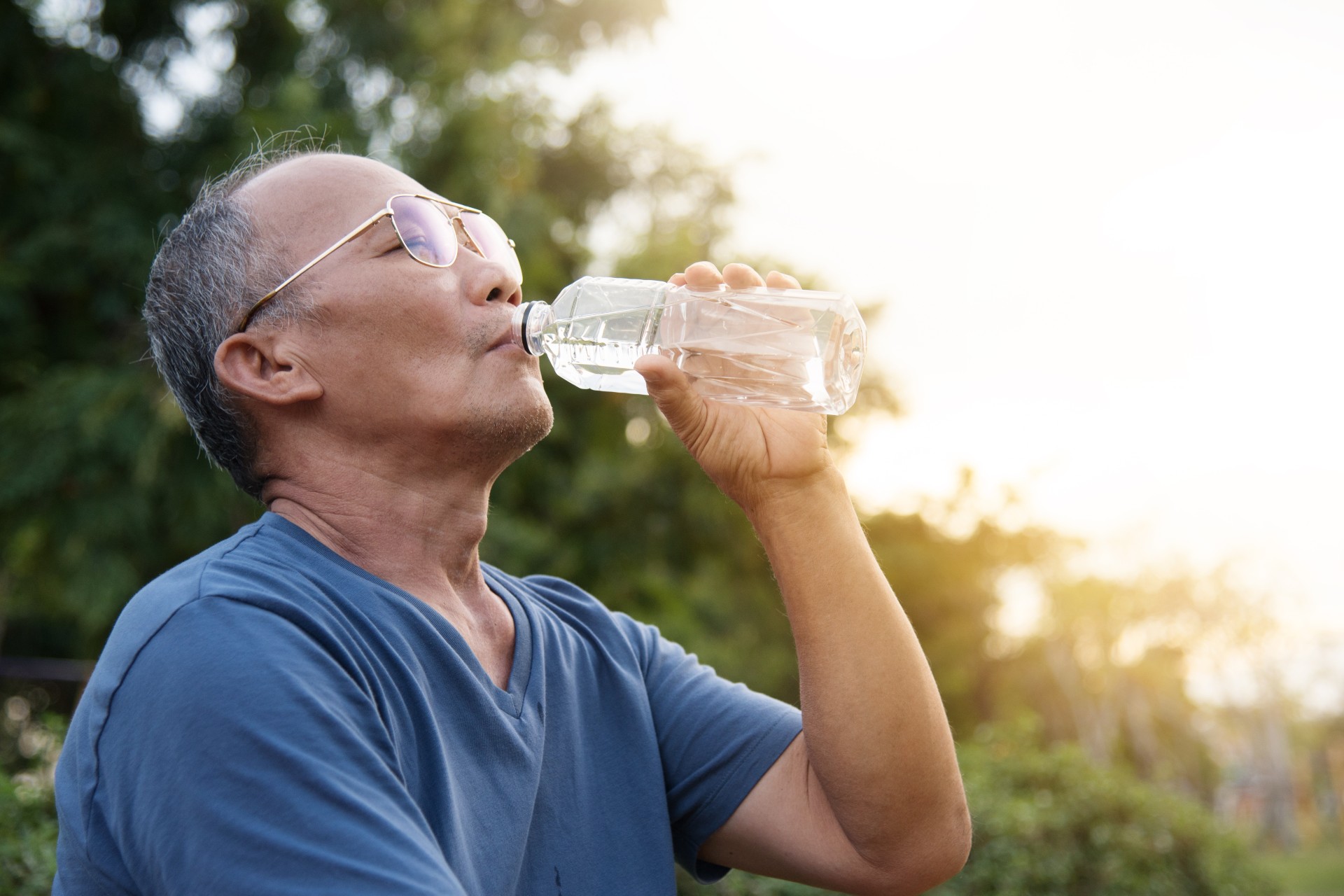Extreme heat is the leading cause of weather-related death among Americans, accounting for 700 deaths annually.
Before you head outside for a run or off on a family vacation this summer, learn from David Vinson, MD, Kaiser Permanente Roseville Emergency Department physician, about which heat-related illness symptoms to look for, how to keep cool, and ways to protect yourself from extreme heat.
What are the most common heat-related illnesses?
The most common and least worrisome is heat cramps, which often occur after strenuous exercise or exertion in the heat due to excess sweating. Symptoms can include twitching, spasms, or soreness in the stomach, leg, or arm muscles.
Heat exhaustion typically happens when you are hot, sweat a lot, and do not drink enough fluids. Signs include weakness, fatigue, nausea, headache, light headedness, and even vomiting.
Heatstroke is the most serious and requires immediate medical attention. This is when your body’s capacity for cooling down is overwhelmed. Sufferers can reach an internal temperature of 104 degrees or higher. Their skin is often red and hot to the touch, and they experience a fast pulse rate, nausea, and confusion because this illness affects brain function.
What is the immediate action to take?
For all 3 it’s important to get the person into a cooler place immediately, ideally in an air-conditioned space, remove excess clothing, and, if possible, place cool, wet cloths on the person.
For heat cramps and exhaustion, sip cool water or a sports drink. For heatstroke, however, liquids should be avoided because the person could have troubling swallowing.
“People have the tendency to underestimate the risks associated with heat-related illnesses. Being prepared and informed is the best protection.” – David Vinson
Heatstroke can be life-threatening or cause serious long-term problems, so it’s important to call 911 immediately. For heat cramps and exhaustion, if symptoms haven’t significantly improved within one hour after doing the above self-care, it’s time to get medical help.
People with preexisting conditions such as diabetes or heart disease and who are experiencing any symptoms should get medical care right away.
Who is most a risk?
Infants, young children, people over 65, pregnant women, and those with chronic medical conditions. But everyone is susceptible to heat-related dangers.
What are ways to mitigate risks?
Keep your outdoor activities under an hour on hot days. If it’s 85 degrees or above, skip your outdoor exercise routine or yard maintenance activities until temperatures drop. If you do need to get outside, do so at 10 a.m. or earlier. The hottest time of day is late afternoon, so avoid outdoor activities then.
When you are outside, wear a hat and light and loose-fitting clothing, take breaks in the shade, and don’t overwork yourself. Drink water and fluids throughout the day. Carry water on you as much as possible, whether walking or driving.
Lastly, if you don’t have air-conditioning at home, you can beat the heat at your community’s nearest cooling center, an air-conditioned public space set up by local authorities, or public spaces with air-conditioning.
Final words of advice?
Temperatures can reach extreme heights very quickly in a car, so never leave children or pets locked in one on hot days. In addition to hydrating children, remember that pets can experience heat exhaustion, too, so ensure they have access to water and cool breaks.
Check on family and friends on extreme heat days to ensure they are taking the necessary precautions. Many underestimate the risks associated with heat-related illnesses. Being prepared and informed is the best protection.
Learn more about heat-related illnesses at kaiserpermanente.org.





This Post Has 0 Comments